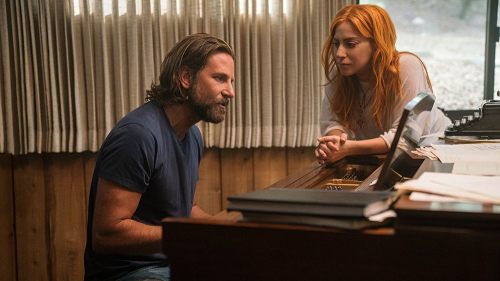The Internet Finally Finds A Kind of Copyright Infringement It Doesn’t Like
When the topic of copyright infringement comes up online, it’s usually in the form of people boasting about how they torrented a movie before it was released or how they downloaded an entire comic book series run. The internet is normally a big fan of copyright infringement, and many people don’t even see a problem with it. I can’t even begin to tell you how many of my filmmaker friends (especially smaller, indie ones) have people compliment their movies while saying they downloaded it illegally, as if liking the film is better than paying for it.
This makes the current uproar over copyright infringement online feel a little disingenuous. The situation is thus: a woman wrote a recipe for a medieval foods blog five years ago; recently someone congratulated her on having her recipe featured in the print magazine Cooks Source. The problem was that she never submitted it, and they never paid her for it. She finally got in touch with the editor of the magazine, who wrote her back a legendarily shitty letter in which she claims that the internet is not copyrighted and that Cooks Source cleaned up her prose and thus was doing her a favor, and that she should be happy she didn’t just run it under someone else’s name. Here’s the letter:
“Yes Monica, I have been doing this for 3 decades, having been an editor at The Voice, Housitonic Home and Connecticut Woman Magazine. I do know about copyright laws. It was “my bad” indeed, and, as the magazine is put together in long sessions, tired eyes and minds somethings forget to do these things.
But honestly Monica, the web is considered “public domain” and you should be happy we just didn’t “lift” your whole article and put someone else’s name on it! It happens a lot, clearly more than you are aware of, especially on college campuses, and the workplace. If you took offence and are unhappy, I am sorry, but you as a professional should know that the article we used written by you was in very bad need of editing, and is much better now than was originally. Now it will work well for your portfolio. For that reason, I have a bit of a difficult time with your requests for monetary gain, albeit for such a fine (and very wealthy!) institution. We put some time into rewrites, you should compensate me! I never charge young writers for advice or rewriting poorly written pieces, and have many who write for me… ALWAYS for free!”
“But honestly Monica” is already something of a meme, and this just erupted in the last couple of days. There’s no denying that this is dickish and that the Cooks Source editor is not only wrong but should be fired immediately. The woman, Monica Gaudio, deserves to be paid for her stolen work and possibly damages as well. There’s no doubt that this is a case where copyright infringement must be punished. Read more about it at Monica’s blog.
But why just this case? Why isn’t the internet shitting its pants in rage whenever a new movie ends up on Bit Torrent? Why aren’t bloggers foaming at the mouth when albums leak? Why is some copyright infringement not just allowable but celebrated, while this is the work of the Devil himself?
I suppose some would argue that it’s because normal internet piracy is about making things free, while Cooks Source took a freely available blog post and made it for pay. That doesn’t make a lot of sense when you really think about it - even if you’re not intending to profit off your piracy (as could be argued, weakly, that Cooks Source is doing), you’re still denying the rightful owner remuneration. You’re stealing, just as surely as the Cooks Source editor did.
Looking deeper I would venture that the real reason for the uproar is simple us vs. them. Cooks Source, as a print magazine, is a them, just as the Hollywood studios and TV networks are. In fact, the them category is very broad and probably includes everyone who hopes to make a living off what they’re doing, which is why people have no problem ripping off the movies of people like Adam Green, who can hardly be said to be raking in the dough at the box office. But at any rate, the Average Joe of the internet sees more in common with Regular Jane Monica than they do with the likes of Green. And so when one of ‘us’ gets hurt, ‘we’ fight back.
What’s funny is how prevalent such copyright infringement is in the movie blog world, where cutting and pasting most of an article from Variety or other trade publication is still pretty much the norm. The argument that you’ve provided a link is pretty weak when you’ve also provided every single bit of information taken from that article, giving readers no incentive to click through.
And there’s irony in the fact that the lowering of moral standards about piracy that led to this article being stolen really began on the internet. I know otherwise upstanding citizens who have no problem stealing the works of others on the regular, and the reality is that we’ve lowered the ethical bar on the subject of piracy. Copyright is less meaningful now. Ownership is less meaningful.
Of course the other element that really elevated this story to the ranks of being covered in Time Magazine is the fact that the letter is truly obnoxious and awful and wrong. There’s been something of an anti-plagiarism movement online lately, and I think Monica’s story would have resonated there but not much farther. Cooks Source gave the necessary ingredient to turn this kerfluffle into a fiasco.
Be outraged at what Cooks Source did here, but answer the question: how is this all that different from you stealing a movie online?



